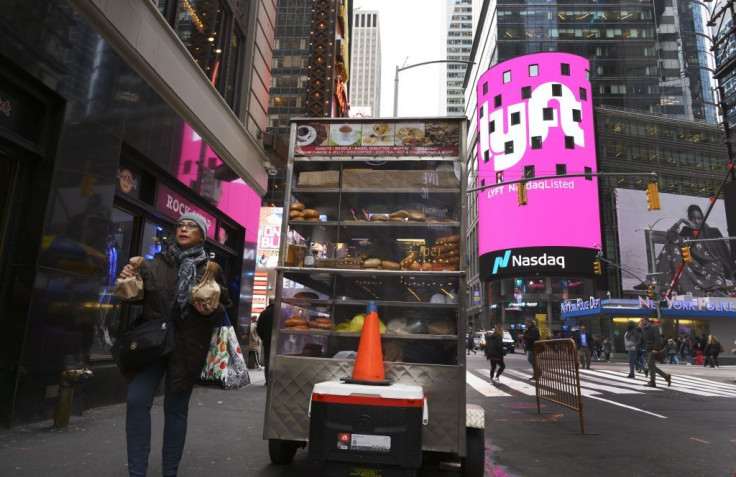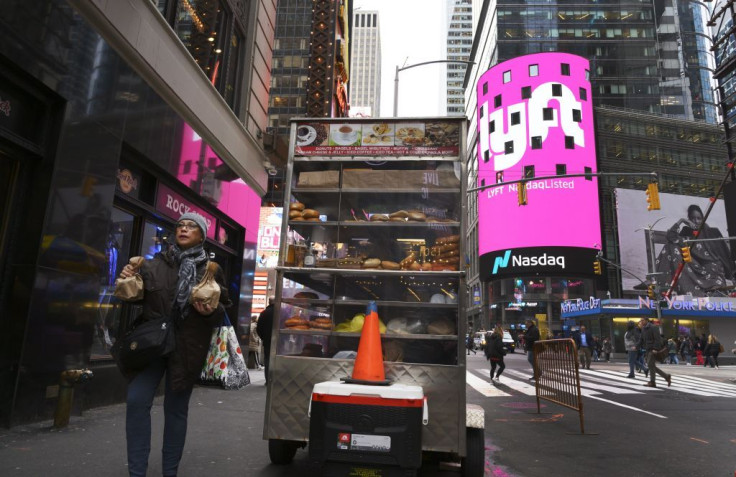Lyft Stock Plunges 12% On Second Day Of Trading

The second trading day for Lyft at Wall Street wasn’t filled with pleasant memories. Shares of the ridehailing firm that debuted at the exchange only on Friday plungers 12 percent to $69.01 on Monday.
The unexpected tumble surrendered all of the gains from last week’s heady debut, closing $2.99 below the IPO price of $72. Analysts said the stock’s performance Monday, which went against expectations, seems to show some investors remain skeptical of Lyft’s lofty $20 billion valuation and have pulled back.
Traders said more than 41.6 million Lyft shares changed hands Monday compared to the 71.5 million shares traded on March 29. They said Lyft only sold 32.5 million shares in the offering, so the market is seeing more traders than long-term buyers.
“They’re shaking out the speculators and making room for the investors,” said Lise Buyer, founder of Class V Group that advises companies ahead of their IPOs, told CNBC.
She pointed out the only fundamental thing that’s changed for Lyft is it now has over $2 billion in fresh capital on its balance sheet and its “management is fully focused on the business.”
Analysts noted several downsides facing Lyft. Investors can’t be certain Lyft’s valuation is accurate given its only competitor on the exchange, Uber Technologies, has yet to list. This means there’s no saying where Lyft should trade relative to its sales and growth rate.
And there’s the debt problem facing Lyft. The company was able to raise multiple rounds from investors to grow its operations and enrich its founders. This makes it harder for new stockholders and public investors to turn a profit.
Then there are the recent and distressing examples of predecessor tech firms on Wall Street. Snap, which debuted in 2017 with a valuation of $24 billion, is worth $15 billion today. Even fresher in the minds of investors is Dropbox. The company opened in March 2018 at $21, zoomed to $42 in June but is now back to its IPO price.

But Lyft can take heart from the misfortune and fortune of Facebook. Facebook’s stock fell 11 percent on day two of its IPO and 9 percent the next. It stayed in the doldrums for five months but then took off.
Investors who bought Facebook after the debut and held on to it have more than quadrupled their money, said analysts.
Only 11 percent of Lyft’s outstanding shares are currently available for trading. The rest of Lyft’s shares are mostly locked-up for six months.
When the lock-up period expires, employees and early investors will get their first shot at selling shares and turn some of their huge paper gains into real world cash.
There is, however, no reason to panic given the stock has been traded at Wall Street for all of two days. Analysts said Lyft can wade through all these concerns with correct execution.
© Copyright IBTimes 2024. All rights reserved.





















